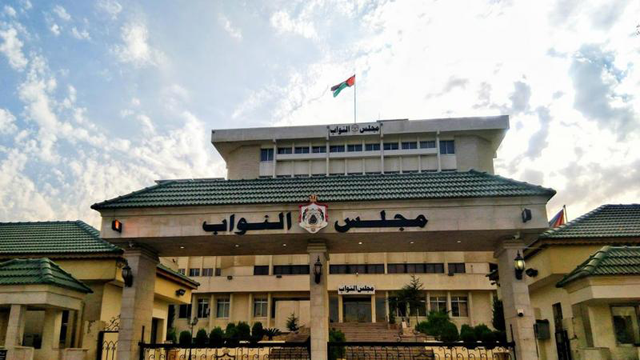AMMAN — The Lower House on Monday passed the 2025 electricity draft law, introducing stricter penalties aimed at curbing violations and unauthorised use of the national electricity system.
Under the new legislation, individuals found guilty of illegal electricity connections or aiding in theft of power will face prison terms ranging from one to three years, in addition to fines between JD5,000 and JD10,000, Al Mamlaka TV reported.
The law also stipulates fines of JD500 to JD1,000 for encroachments on designated electrical easement zones, with increased penalties for repeat offenders. Property owners will be held accountable for such violations unless they can provide evidence implicating a third party.
A new provision criminalises the unauthorised storage of energy beyond limits set by the Energy and Minerals Regulatory Commission (EMRC), with violators facing one to three years in prison or fines between JD100,000 and JD200,000.
Additionally, tampering with or removing seals from electricity meters or switches installed by licensed distributors, when done with intent to steal electricity, will carry penalties of one to two years' imprisonment and fines ranging from JD2,000 to JD7,000.
The law aims to protect the integrity of the national grid and reduce electricity theft, which continues to pose a significant challenge to Jordan’s energy sector.
The Lower House on Monday also approved the 2024 draft public statistics law and the 2025 amendments to the Civil Aviation Law, endorsing changes introduced by the Senate earlier this month.
One of the key amendments to the Public Statistics Law grants non-governmental organisations the right to conduct and publish statistical studies for their own purposes, or on behalf of others, provided they obtain prior written approval from the Department of Statistics. The Lower House ratified this provision as part of the revised bill.
During their deliberations, lawmakers also recommended that the government adopt clear definitions of statistical concepts to better delineate the roles of key institutions involved in data governance, including the Department of Statistics, the National Information Centre, and the Ministry of Digital Economy and Entrepreneurship.
The Public Statistics Law forms a key component of Jordan’s broader economic modernisation agenda. It seeks to enhance data collection through administrative records and modern technologies while establishing a national data centre to support evidence-based decision-making with secure, high-quality and accessible information.
MPs approved the amended Civil Aviation Law, which grants the Civil Aviation Regulatory Commission (CARC) sole authority to approve or reject land-use plans in and around airports, a power the Lower House had initially proposed be subject to Cabinet oversight.
The House also accepted a Senate-endorsed article stipulating that all CARC-issued documents, including licences, certificates, permits, and reports, whether in electronic or paper format, are to be recognised as official.
The revised law also aims to bolster institutional governance, clarify regulatory mandates, improve aviation safety protocols, and facilitate international aircraft leasing arrangements. It also ensures that investigations into aviation incidents are conducted independently.
The Lower House also approved the 2024 draft law on the National Committee for Women’s Affairs, formalising the body’s mandate through a 13-article legal framework that ensures its sustainability, independence, and coordination with both government entities and civil society organisations.
Established in 1992, the committee plays a key role in advancing the political, economic, and social empowerment of women across the Kingdom.
During the session, Speaker Ahmad Safadi and Minister of State Ahmad Owaidi Abbadi commended the Legal Committee for its efforts in refining the draft. He also emphasised the importance of clarifying that senior appointments to the committee are made through a Royal Decree.
The Chamber also referred the 2025 draft law on the regulation of virtual assets to the Parliamentary Committee for the Digital Economy.
The proposed legislation seeks to regulate virtual asset activities, define licensing standards, and align with international norms on anti-money laundering and counter-terrorism financing. It also outlines the supervisory role of the Jordan Securities Commission over service providers, with the aim of maintaining financial stability while fostering technological innovation.
